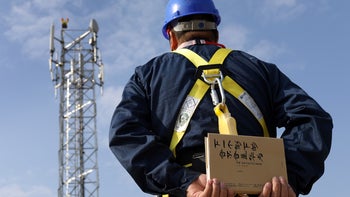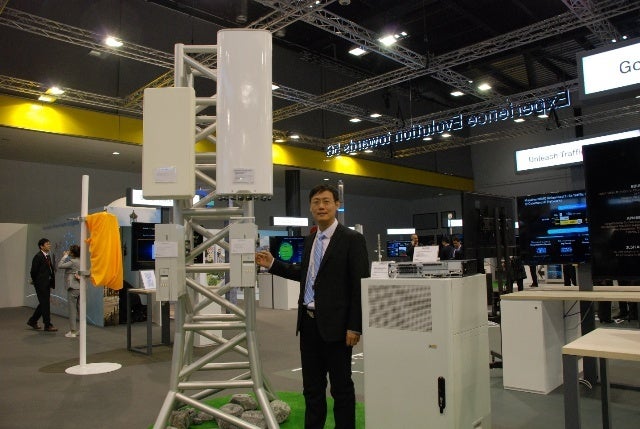Huawei welcomes a thorough examination of its 5G technology to prove it's not a security threat

Since 2012, Chinese phone and networking equipment manufacturer Huawei has been considered a national security threat. Perceived ties with the Communist Chinese government have the current administration concerned that Huawei collects personal and corporate data using back doors placed inside the company's handsets and networking gear. Even though this has never been proven and has been denied by the company, President Donald Trump cited "security" for placing Huawei on the Entity List last year preventing the firm from accessing its U.S. supply chain.
Huawei will allow itself to be thoroughly examined to prove that it is no security threat
Being placed on the Entity List forced Huawei to scramble to find replacement suppliers for some of the key parts it needs to build phones and networking gear. Losing the ability to license the Google Mobile Services version of Android also meant that Google's Android apps like Search, Maps, YouTube, Gmail, Drive, and others could not be installed on Huawei phones. In China, where Google's apps are banned anyway, the absence of these apps wouldn't affect sales of the manufacturer's phones. But outside of the firm's home country, sales of the International Models were reportedly impacted by Huawei's inability to license Google's Android ecosystem.

Huawei is the leading supplier of networking equipment in the world
On the first anniversary of its placement on the Entity List, the U.S. tightened the screws a little more by changing certain export rules. Now, a foundry anywhere in the world must obtain a license before shipping chips made with U.S. technology to Huawei. That includes new cutting-edge 5nm Kirin 9000 semiconductors that are supposed to power Huawei's most technologically advanced phones this year, the Mate 40 series. These chips are also vital to the production of two-way radios and other gear required for the firm's 5G networking equipment. The number one provider of such equipment worldwide, the U.S. had asked its allies last year not to use Huawei gear for their 5G networks. Some countries followed the U.S. request while others, like Britain, did not. But now Britain is feeling buyer's remorse and is thinking about stripping Huawei's parts out of its new networks.
According to Reuters, the head of Huawei's Italian unit, President Luigi De Vecchis, said that the company is ready and willing to have its facilities examined with a fine-tooth comb to prove that its technology does not create a security risk to those countries that use Huawei's gear in their 5G networks. In Rome on Wednesday, De Vecchis spoke at the opening of the company's new cyber-security center and stated, "We will open our insides, we are available to be vivisected to respond to all of this political pressure. I am speechless that a country the size of the United States attacks another country through the demolition, via groundless accusations, of a company of that country."
Coincidentally, U.S. Secretary of State Mike Pompeo arrived in Italy to begin a two-day visit to the country at the same time that Huawei was opening its cyber-security center. De Vecchis added that the company will not leave the Italian market and in fact is looking to create products for the country in different fields including the energy industry. The Huawei executive said, "It’s extremely unlikely Huawei will leave the market because of the current situation."
The U.S. continues to put pressure on Chinese tech firms. U.S. companies now need a license to export certain materials to SMIC, China's largest foundry (SMIC). And the Trump administration is thinking about adding SMIC to the Entity List as well. Of course, we've been closely following what is going on between the White House, short-form video app TikTok, and the latter's parent ByteDance. Once again it comes down to the same fear over the safety of personal data belonging to American consumers and corporations. And yet, there has been no smoking gun to date.










Things that are NOT allowed: